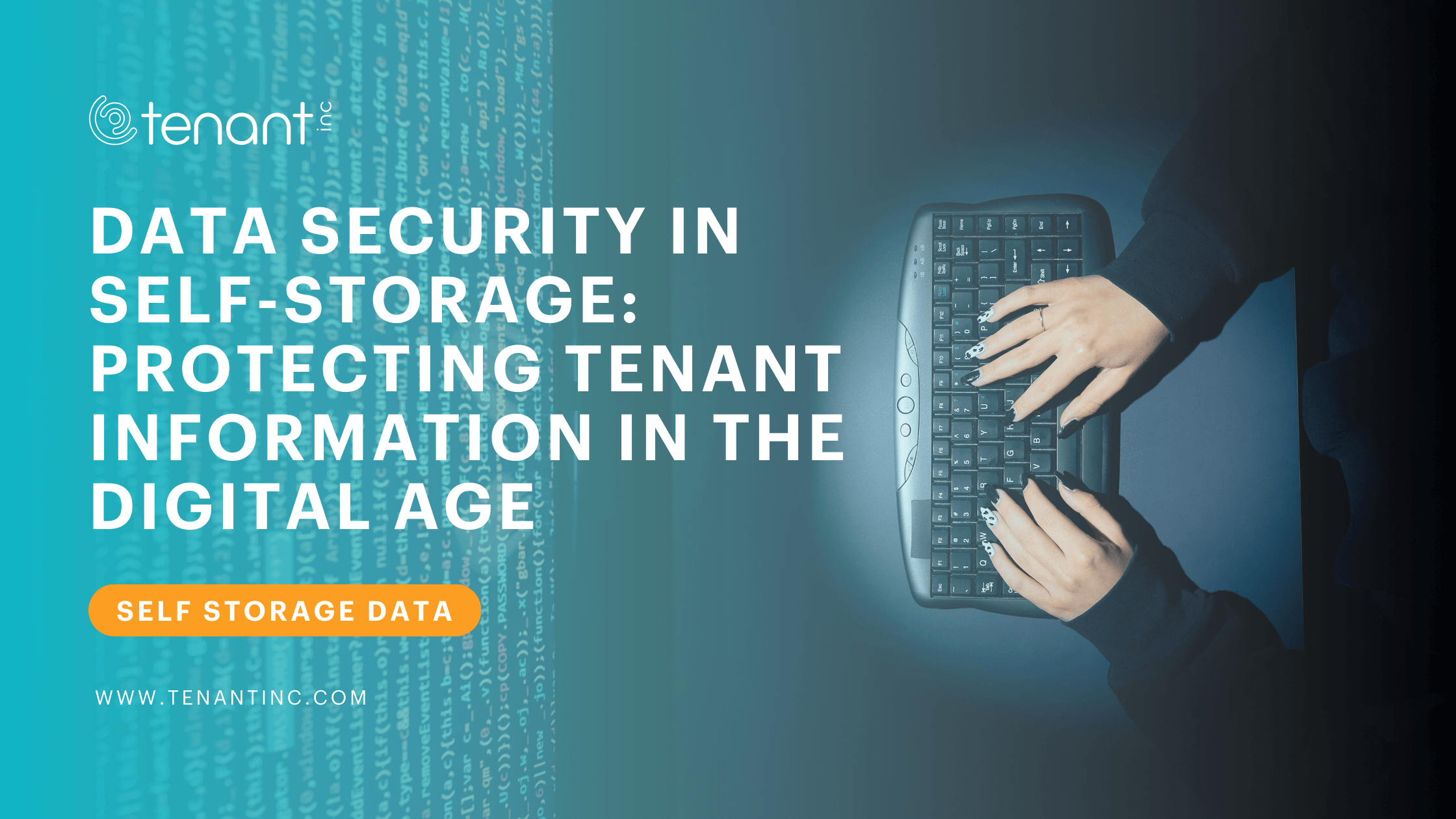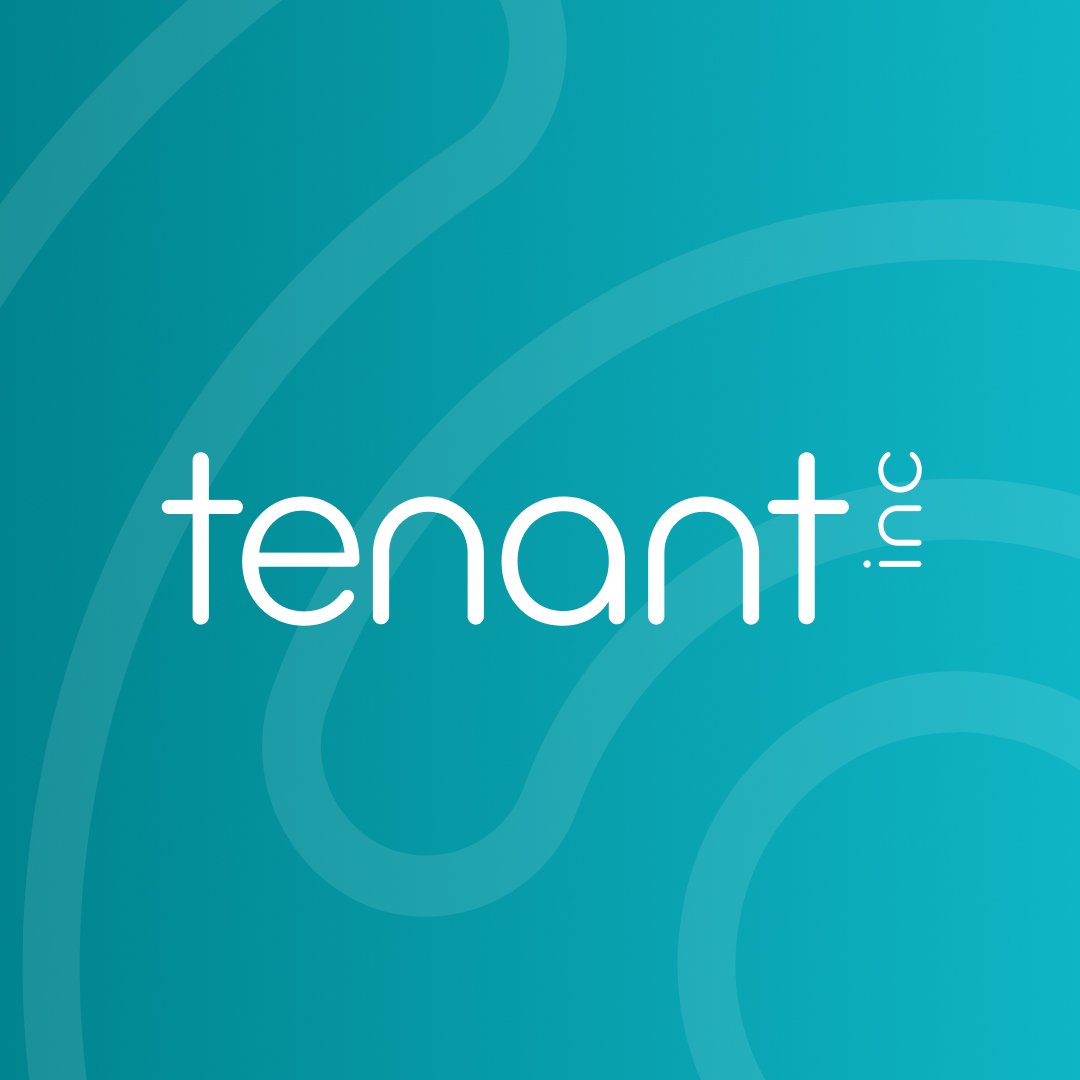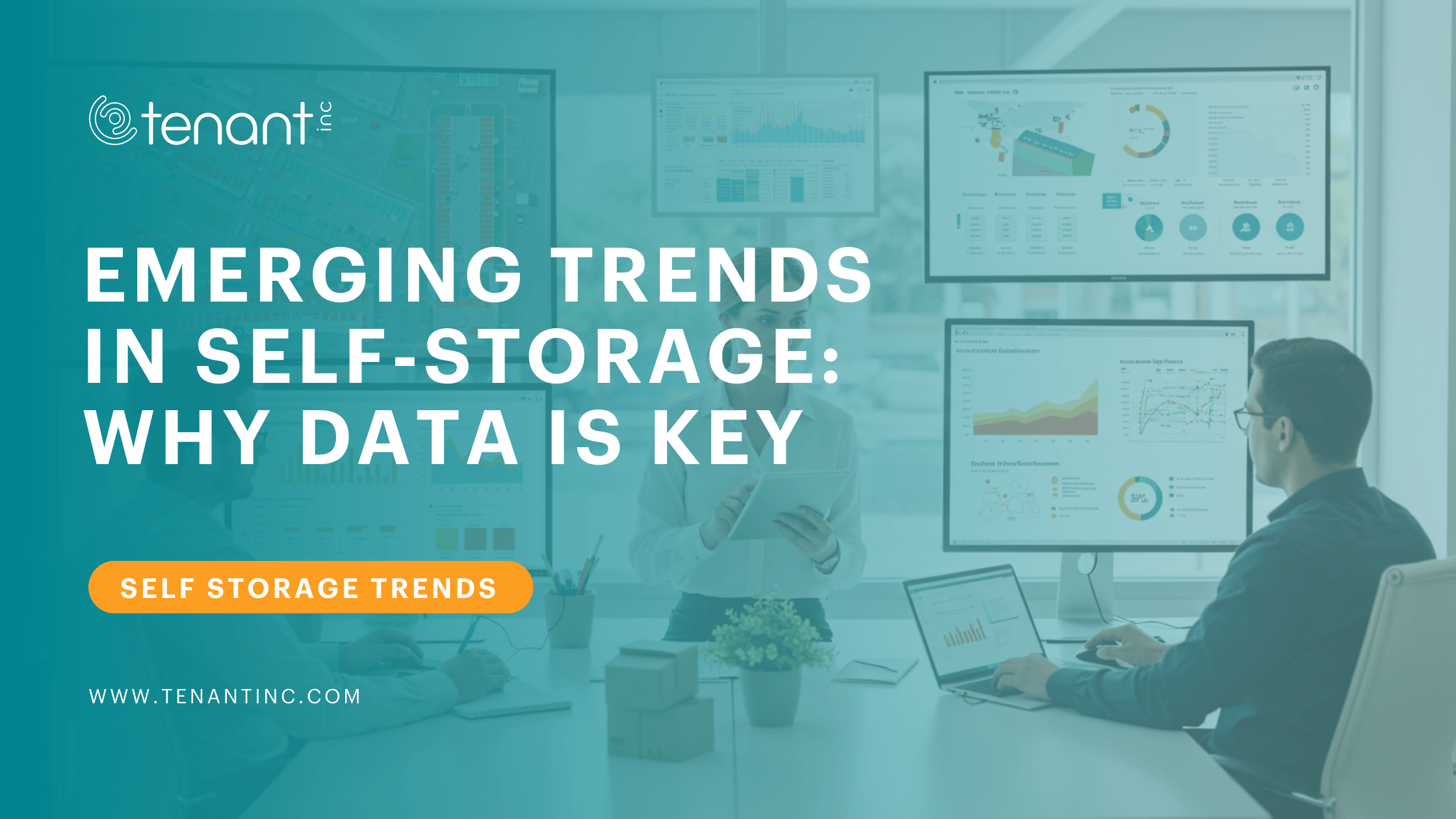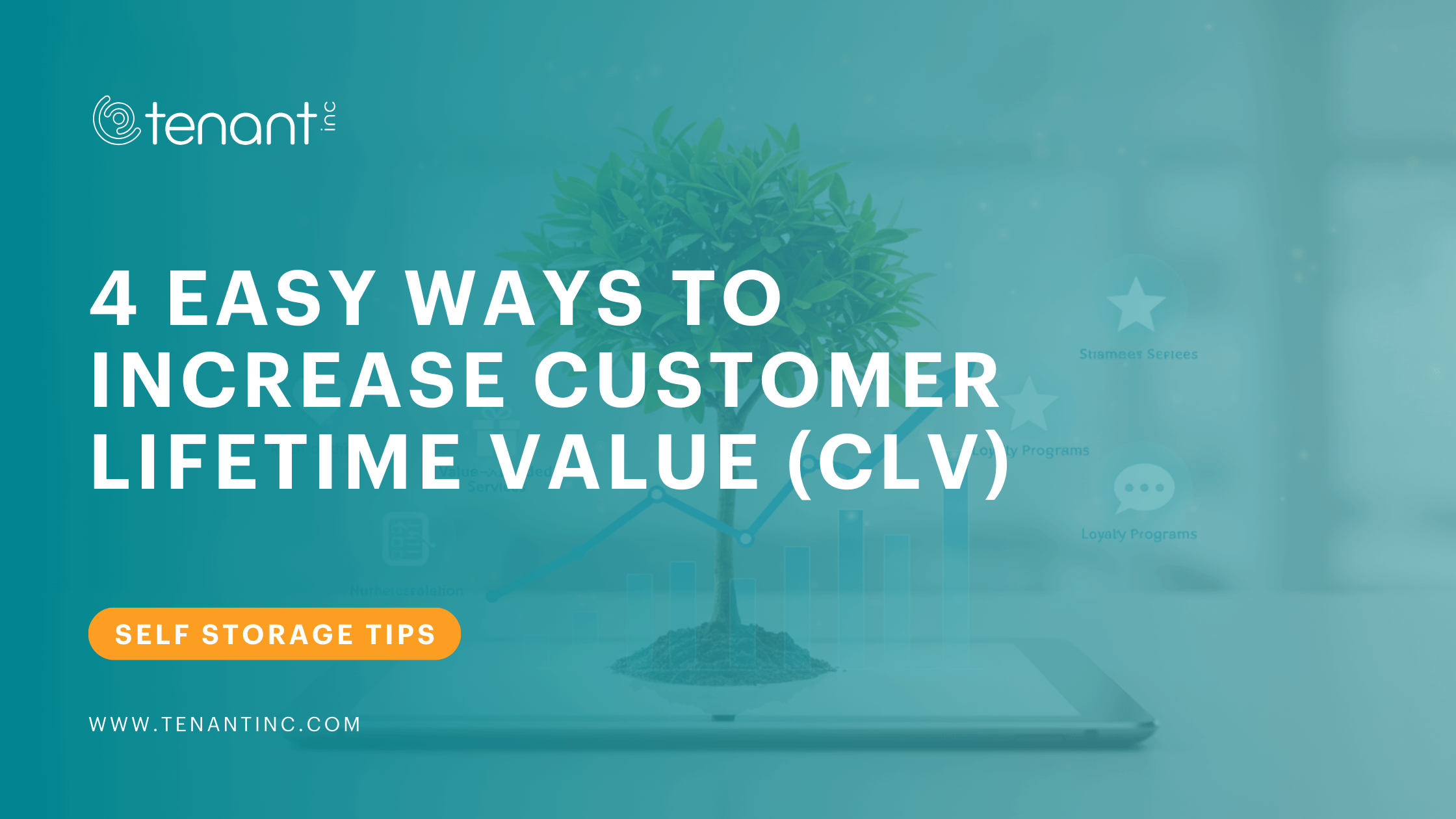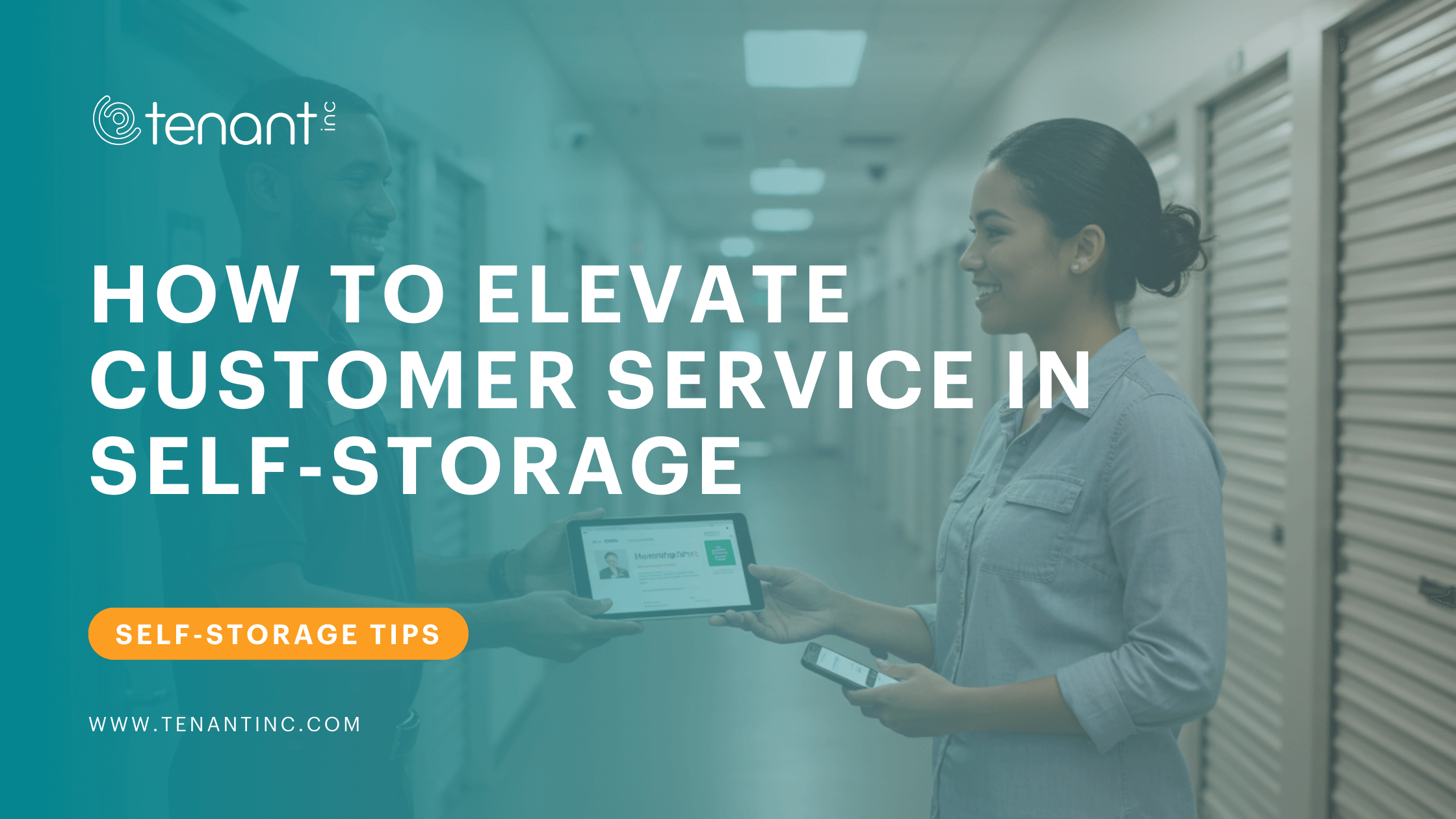Advancements in technology have revolutionized the self-storage industry, bringing unprecedented convenience and efficiency. But this digital transformation also presents new challenges, particularly when it comes to protecting sensitive tenant information.
In today's interconnected world, data breaches are a constant threat. Cybercriminals and other nefarious actors are becoming increasingly sophisticated, targeting businesses of all sizes, including self-storage facilities. With the rise of online rental systems, automated payments, and other digital tools, self-storage operators now handle a wealth of sensitive data, from personal identifiable information (PII) to financial details and confidential rental agreements.
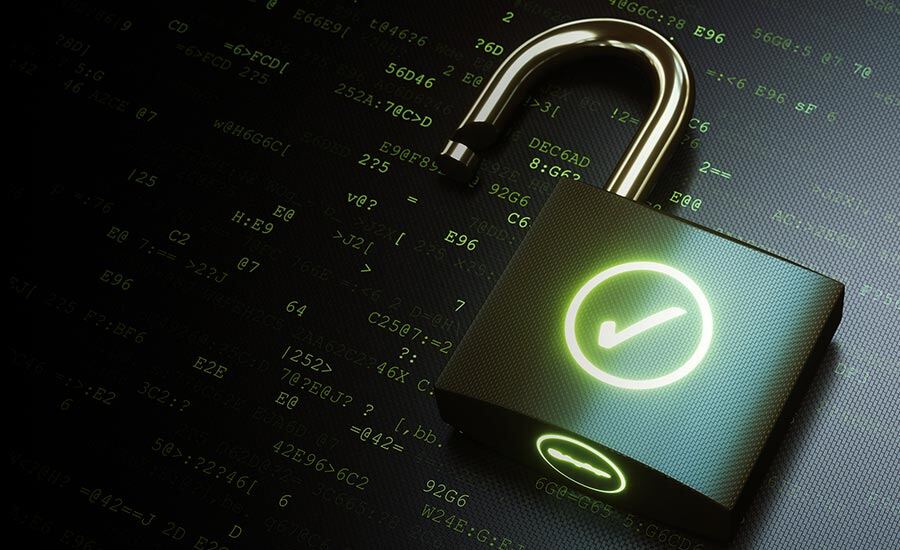
Why Data Security Matters in Self-Storage
Self-storage facilities manage a treasure trove of sensitive tenant information, including personal identifiable information such as names and addresses, financial details like credit card numbers and payment history, and confidential rental agreements. A data breach can have devastating consequences, leading to significant financial losses, legal repercussions, and irreparable damage to your facility's reputation.
In today's digital landscape, prioritizing data security is not just a best practice; it's essential for maintaining tenant trust, complying with regulations like GDPR and CCPA, and safeguarding your business's future. While tools like Tenant Inc.'s Data Warehouse provide secure, valuable insights into your business operations and tenant behavior, it's crucial to implement robust security measures to protect this sensitive information.
Examples of sensitive tenant information include:
- Personal Identifiable Information: Names, addresses, phone numbers, and email addresses.
- Financial Details: Credit card numbers, bank account information, and payment history.
- Rental Agreements: Lease terms, unit details, and payment schedules.
Tenant Inc. ensures data ownership and compliance with industry standards, empowering operators to maintain control over critical information.

Data Security Risks in Self-Storage
As the self-storage industry becomes increasingly reliant on technology, making data security a critical concern for operators of all sizes. Failing to address potential vulnerabilities can expose your business and your tenants to significant risks.
Consider the following data security implications:
- Outdated Software: Legacy systems or unpatched software often have security vulnerabilities that hackers can exploit. Newer software typically includes more robust security protocols and is easier to update to meet evolving threats.
- Phishing Attacks: Cybercriminals use deceptive emails or messages to trick employees into revealing sensitive information, such as login credentials or financial data. They may also try to lure employees into downloading malicious software that can compromise your entire system.
- Weak Passwords and Authentication: Poor password practices, such as using weak or easily guessable passwords, or failing to implement multi-factor authentication (MFA), can leave your systems vulnerable to unauthorized access.
- Insider Threats: Employees or contractors with malicious intent or those who are simply careless with data handling can inadvertently cause breaches. It's crucial to limit access to sensitive information and implement strict data handling protocols.
- Third-Party Vendors: Partnering with vendors who lack robust security measures can expose your systems to additional risks. It's essential to choose technology providers that prioritize data security and comply with industry standards.
- Physical Security Breaches: While often overlooked, physical security breaches can also compromise data. Unauthorized access to servers, computers, or physical files can lead to data theft or damage.
- Lack of Data Encryption: Failing to encrypt sensitive data, both in transit and at rest, can leave it vulnerable to interception and unauthorized access.
- Inadequate Disaster Recovery Planning: Without a comprehensive disaster recovery plan, your business may be unable to recover critical data in the event of a natural disaster, cyberattack, or other unforeseen events.
Essential Practices for Data Security in Self-Storage
Protecting tenant data is paramount for self-storage businesses. With the rise in sophisticated cyberattacks, it's crucial to implement robust security measures and partner with technology providers that prioritize data protection. One critical aspect of data security is SOC II (System and Organization Controls 2) compliance. SOC II is an auditing standard that ensures service providers securely manage your data to protect the interests of your organization and the privacy of your tenants.
To enhance your facility's data security, consider the following essential practices:
- Choose a SOC II Compliant Software Provider: Prioritize technology partners like Tenant Inc. that have undergone SOC II audits, demonstrating their commitment to data security and compliance with today's leading practices.
- Implement Strong Access Controls: Use role-based access to limit data exposure, ensuring employees only access information necessary for their role. Require multi-factor authentication (MFA) for accessing sensitive systems.
- Regularly Update Software and Systems: Keep all systems, including management software and firewalls, updated with the latest security patches. Conduct routine vulnerability assessments to identify and address potential weaknesses.
- Train Employees on Cybersecurity: Educate staff on recognizing phishing attempts, creating strong passwords, and adhering to data handling protocols. Regularly update training to address emerging threats and technologies.
- Develop a Data Breach Response Plan: Create a clear, actionable plan to respond to data breaches, including immediate containment, notification procedures, and remediation steps.

The Role of Technology in Data Security
Modern self-storage management platforms offer robust built-in security features to safeguard tenant information. Advanced solutions prioritize data protection through various measures, such as automated data backups, real-time monitoring systems, and detailed access logs. These functionalities help prevent data loss, detect suspicious activity, and ensure compliance with industry standards and regulations.
Benefits of Implementing Robust Data Security
Investing in technology with robust data security measures offers numerous benefits for self-storage businesses, extending beyond simply protecting sensitive information. Here's how prioritizing data security can contribute to your success:
- Enhanced Tenant Trust and Loyalty: In today's digital age, tenants are increasingly concerned about the security of their personal information. By demonstrating a strong commitment to data protection, you build trust and confidence, fostering long-term relationships with your tenants and increasing the likelihood of repeat business and referrals.
- Competitive Advantage: In a crowded marketplace, data security can be a key differentiator. By showcasing your commitment to protecting tenant information, you can attract and retain security-conscious customers, giving you an edge over competitors who may not prioritize data protection.
- Reduced Legal and Financial Risks: Robust data security measures help you comply with data protection laws and regulations, such as GDPR and CCPA, minimizing the risk of hefty fines, legal action, and reputational damage.
- Enhanced Brand Reputation: A strong security posture enhances your brand image and reputation. It demonstrates that you take data protection seriously, building trust with tenants, partners, and investors.
%20(1).png)
Future Trends in Data Security for Self-Storage
As technology evolves, so do the methods for protecting tenant information. Emerging trends include:
- Biometric Authentication: Operators can use fingerprints or facial recognition to enhance system access security.
- Blockchain Technology: Facilities can provide tamper-proof data storage and transaction records.
- Artificial Intelligence (AI): Detecting and responding to cyber threats in real-time.
Data security is no longer optional for self-storage operators; it’s essential to modern business practices. It’s not an expense–it’s an investment. Using solutions from Tenant Inc., self-storage operators can strengthen their data security strategies, comply with legal standards, and build trust with tenants.
Ready to experience the power of a truly secure and innovative self-storage platform? See for yourself how Tenant Inc. can transform your operations and safeguard your data.
